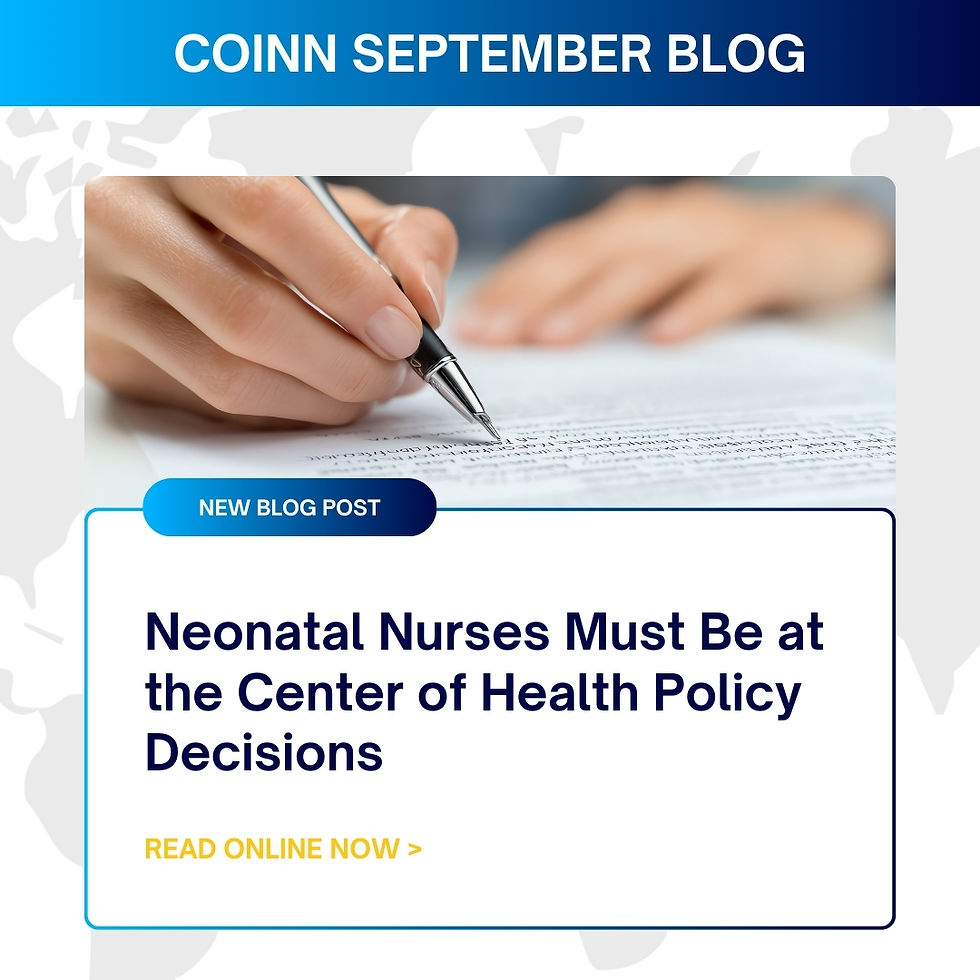Patrick Too, RN - CITIZEN WEEKEND
- ceo10529
- Jun 10, 2023
- 2 min read

Neonatal mortality constitutes 40% of under 5 mortalities. Among the diseases that contribute to neonatal mortality; prematurity is the leading and is ranked second after pneumonia as the cause of under 5 mortalities. Survival rates among the preterm births are not equal around the world with high rates of preterm babies surviving in high income countries and low survival rates among the low- and middle-income countries.
Everyone has a responsibility to prevent preterm births and improve the care of babies thus achieving the goal of reducing neonatal deaths by 50% by 2025.
Patrick Too (COINN) together with Dr Emily Njuguna (Peadiatrician, Africa Regional Technical adviser PATH) and Dr Simon Kigongu who is the chairperson, Kenya obstetrical and gynecological society had an opportunity to highlight the ‘Born too Soon’ report at Citizen TV.
We discussed causes of premature deliveries including multiple pregnancy, chronic conditions such as hypertensin, diabetes, infections such as syphilis and the genetic influence. More than 75% of deaths of preterm births can be prevented without intensive care. Prevention measures include family planning, quality antenatal care, reduced provider-initiated births, proper nutrition, girls’ education and mitigation of climate change. Encouraged use corticosteroids to promote lung maturity, tocolytics to stop labour
and antibiotics in case of pre-labour premature rapture of membranes.
Care of premature babies should be initiated in delivery room including keeping them warm, neonatal resuscitation and providing breastmilk within 1 hour after delivery. Use of plastic wraps in prevention of hypothermia Initiating kangaroo mother care. High quality, family centred care should be provided to all newborns.
The complications associated with prematurity includes visual impairment, hearing impairment, chronic lung disease of prematurity, long-term cardiovascular ill-health and noncommunicable disease, Neuro developmental effects, family, economic and societal effects.
There is need for advocacy for all newborns to receive evidence based routine care and management of complications according to WHO guidelines, align staffing in newborn units to meet the WHO standards, provide all essential newborn technologies and encourage family centered care.







Comments